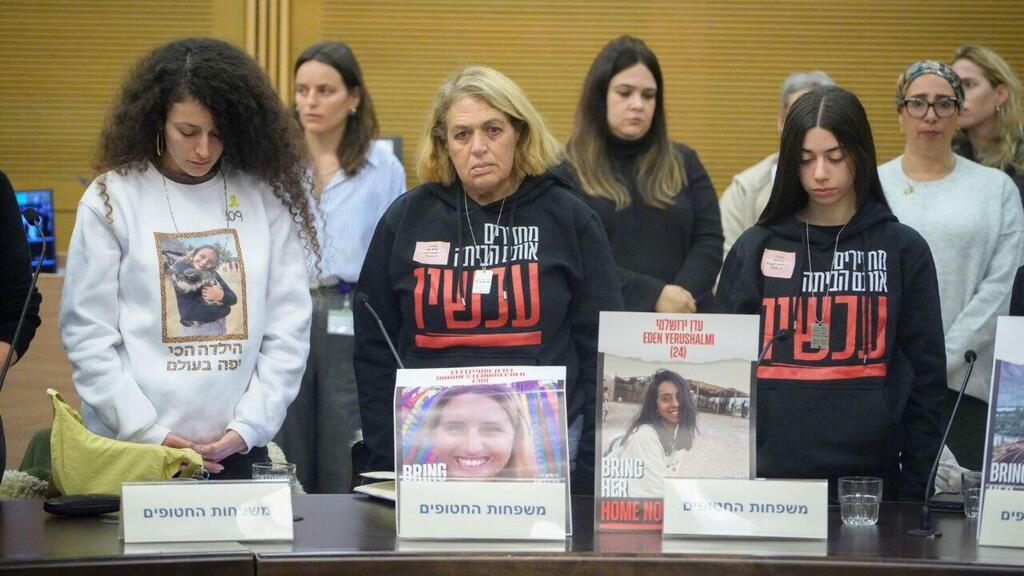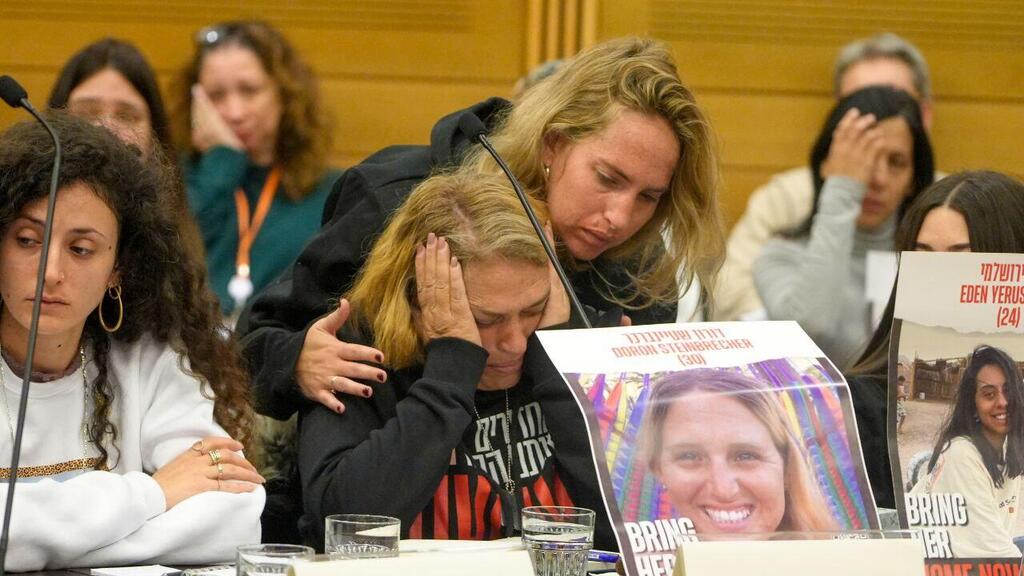Getting your Trinity Audio player ready...
The Knesset held its first session dedicated to addressing sexual and gender-based violence in war on Tuesday, led by lawmakers Meirav Michaeli from Yesh Atid and Avi Dichter from Likud. The discussion included testimonies from former hostages who returned from captivity, sharing the horrors they witnessed and expressing concern for the women still in captivity.
Read more:
Chen Goldstein-Almog, who was released from Hamas captivity, shared: "When we parted ways with the women who were with us in captivity they were on the edge, with a profound despair that they were still left there. Some of the girls from the Gaza envelope area don't know if their husbands or parents are alive, if their communities were evacuated, or what happened there. They feel forgotten, abandoned since October 7, and it has been eight and a half weeks, and there is still no sign of life from them."
2 View gallery


At the Knesset session addressing sexual and gender-based violence in war
(Photo: Shalev Shalom)
According to Almog: "There are women in captivity who haven't had their menstrual cycle for a long time, and maybe that's what we should pray for – that their bodies will protect them, and they won't be subjected to pregnancy. We need to do everything to bring them back. There are difficult physical conditions of food and hygiene, and also harsh conditions of danger that we don't know if their captors will receive orders to harm them. I am very worried about them."
Aviva Siegel, who was released in a previous round of negotiations while her husband was left in Gaza, expressed that her concern for the women left in captivity stays with her. "I would like to go back to captivity to protect the girls there, as I did when I was there. I felt as if they were my daughters," she said.
"The terrorists bring inappropriate clothes for the girls, doll-like clothes. They turned the girls into their dolls, that they can do whatever they want with. And it’s unbelievable that they’re still there. I can't breathe; I can't cope with this, and it's too difficult. We are closing in on four months, and they are still there," she also said.
Siegel shared her experience with the lawmakers. "I was there for 51 days. There wasn't a minute when we didn't experience something, abuse in all forms, and they are still there barely surviving. Last night I slept with my family in the protest tent; I didn't sleep, my mind was in Gaza. I could imagine hearing the sounds of explosions, not knowing if it was a helicopter or a tank; I am still there, my whole body is there. My heart is there, and it's exploding. I can't understand how the world is silent, how the cabinet continues. I want to tell you that the boys also go through these things; they can't get pregnant, but they also go through it, and something has to change now," she said.
"We didn't confront the terrorists. We did everything they said, whether it was standing, sitting or being silent – it was terrible," Siegel added.
Her daughter, Shir, directed blame at the Knesset members. "My mom's stories are just the tip of the iceberg; you have no idea the abuse they endure there," she said. "The important people, the decision-makers sit in the cabinet, and don't hear these things. Where are they? Has anyone reported on these girls? They are being raped there, and no one is saying anything. My mom shouldn't have to be here telling the stories – you (Knesset members) need to go to the cabinet and tell them. They are in captivity; they haven't done anything wrong. We don't have the right to sit here; we need to shout their outcry. Someone is sitting in a tunnel right now being raped, enough! How much longer can we sit in discussions? I embrace the mothers of the kidnapped, and I have nothing to say to them."



